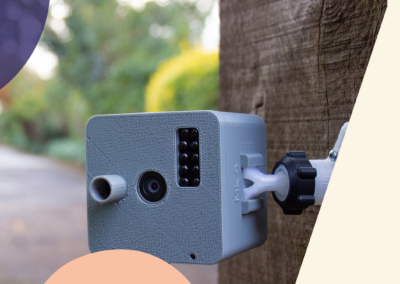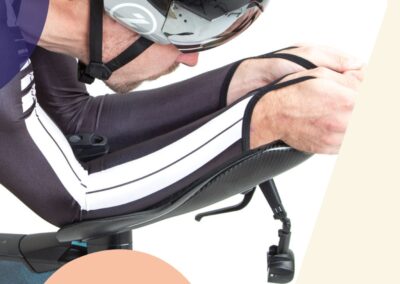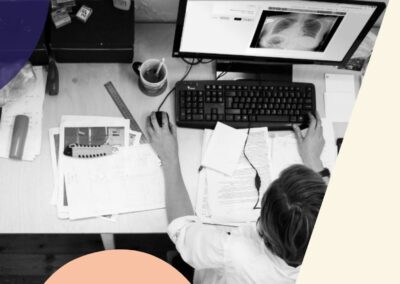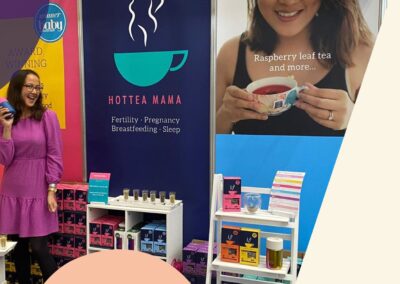Hutano Diagnostics
Hutano Diagnostics are developing a modular, configurable lateral flow device (LFD) platform. The platform is being applied to quick diagnosis, tracking and outbreak spread prediction of emerging and dangerous infectious diseases recurring in Africa, as well as being applied to sepsis prognosis.
Innovation Grant
1:1 Support
Marketing & Sales
The challenge
Hutano needed financial support to buy a machine for LFD manufacture and access to equipment that was specific for their purposes. Furthermore, during Covid, Hutano had ups and downs getting funding to support the development of their products.
The solution
Two innovation grants secured to provide stability to the business and support progression in the lab. OxLEP connections were also utilised for research collaboration, along with advice in marketing and business planning.
Founder, Atherton Mutombwera, tells us how it all began “As a child living in Zimbabwe I would think about finding a cure for HIV one day. I loved science and wanted to learn how to apply technology to medical challenges that people face in Africa. In 2013 I finished a Pharmacy undergraduate degree in South Africa and successfully completed a masters in Nanobiomedicine at the Nelson Mandela Metropolitan University in 2015.
The Ebola outbreak in Africa was happening at this time, so as part of my masters, I worked on developing a lateral flow test that could quickly diagnose Ebola. There was nothing like this on the market at that time. My focus was on innovating the way you make the test, so instead of using antibodies to make it, we used aptamers, which are cheaper to make, don’t require refrigeration and have a longer shelf life.”
Atherton received a Louis Dreyfus-Weidenfeld and Hoffmann Saïd Scholarship to complete an MBA at Oxford University. Following this he set up Hutano Diagnostics Ltd and continued developing the Ebola lateral flow test. “The current system for diagnosis in Africa is complicated, so I wanted to make it as easy as possible, and quick disease diagnosis and tracking is crucial.” says Atherton.
In 2018 Hutano Diagnostics Ltd was officially registered as a business with a board of directors in place. Atherton was looking for additional support to help him get things off the ground. According to Atherton, OxLEP played an essential part in starting up the business “In the early stages we needed as much help as possible. We especially needed financial support to buy a machine for LFD manufacture. We didn’t have access to equipment in our lab that was specific for our purposes. So the first time we interacted with OxLEP was to apply for a grant through the Elevate programme.Since then we have received 2 grants from the ISfB programme who have also supported me to engage with research institutes which has helped me to establish collaborations which support my on going research.
The OxLEP team were excellent; there was so much support on offer and they helped me with my grant application. The funds we received helped us progress the technology and support our work in the lab in general.”
"The OxLEP team were excellent; there was so much support on offer and they helped me with my grant application"
Atherton Mutombwera
Founder, Hutano Diagnostics
OxLEP Business also provided a signposting service to enable Hutano to connect with useful resources and one to one support. Atherton tells us the benefits “Alongside the funding support we also had one-to-one support sessions on subjects including sales, strategy and finance. These were excellent. Getting a specialist view on things was really helpful. We also connected with many individuals in my geographic region, across sectors. This has been excellent.”
During Covid, Hutano had ups and downs getting funding to support the development of their products. But Atherton explains that the support from OxLEP remained consistent and helped them weather the storm. “OxLEP were able to extend their support to us through their Innovation Support Programme, meaning we have been able to stay afloat during these challenging times.”
Hutano’s ambition now is to continue developing the LFD platform and resulting diagnostics. Atherton explains “Our aim over the next year is to have a platform that can detect up to 20 different proteins, available as a lateral flow test. But developing our technology takes time and money. With OxLEP’s continued support we’re able to develop the tech and our online platform, as well as build up our team.
Things have been constantly changing for us. Our work over the past three years has pivoted from Ebola to Covid and now into other diseases such as Sepsis. We now have a collaboration with Oxford University to develop a test for children who have a fever, which may progress to Sepsis. There is currently no diagnostic for this. It’s so important for this to be detected as soon as possible. We will translate the findings of a clinical trial with about 6,000 children to identify the proteins that are elevated in those that are most likely to develop Sepsis. This would be life changing for so many children across the world.”
Atherton’s relationship with OxLEP is now moving into year three and he tells us what an important part they have played in the success of his company to date. “One of the biggest challenges as a start-up business is that you don’t typically have much free support available or grant funding that can come through quickly. But the way OxLEP is structured made everything easy for us and it allowed us to be able to make faster decisions. And, they have continued to support us through the years as a growing, innovative business.
I would say for businesses that want to apply for funding or need specialist advice and guidance, they need to get in touch with OxLEP Business. They have been absolutely brilliant.”
Download a copy
Click/tap to download a PDF copy of this testimonial.









